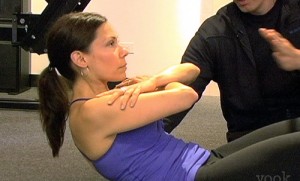by Michelle Sutton-Kerchner
Give your elbows a little love. They have been through a lot this summer …
It does not take a passion for tennis or golf, or a dedication to bicep curls, to cause elbow fatigue. Usually, we take elbow function for granted—until they remind us of their presence. If you notice your elbows protesting lately, take action. Ignored, elbow pain can develop into a chronic condition.

Summer tends to be a time of increased physical activity. In addition to your workout, there is gardening, backyard games, and golfing. Although your weightlifting routine or kickboxing sessions never previously bothered you, combined with a summer of repetitive elbow movements can change that. Suddenly, basics like push-ups and keyboarding at your desk can trigger elbow pain.
1. Determine the Cause
Check with your physician to determine the cause of your elbow pain. An examination, and possible diagnostic tests, can eliminate causes for serious concern. Often, a sore elbow is the simple result of overuse. Once any serious issues are eliminated, tweaks to your activities can alleviate this sore spot.
2. Avoid the Offending Motions
 You easily can rest the elbow without ditching your workout and other activities. Modifications can help you remain conditioned and active as the area repairs itself. Complete rest can be detrimental, causing stiffness and limited mobility in the elbow and elsewhere. A personal trainer or physical therapist can customize movements so you can remain fluid and active while healing.
You easily can rest the elbow without ditching your workout and other activities. Modifications can help you remain conditioned and active as the area repairs itself. Complete rest can be detrimental, causing stiffness and limited mobility in the elbow and elsewhere. A personal trainer or physical therapist can customize movements so you can remain fluid and active while healing.
3. Focus on Full-Body
Avoid isolation exercises that focus on the arms. Strengthen the surrounding muscles with exercises that do not rely on single-joint movements. In other words, ease off the repetitive motions that initially triggered the fatigue. (For example, replace tricep kickbacks with pull-ups. Ask a trainer for more swaps.)

Exercises that involve the major muscle groups assure joints, including elbows, are better stabilized and supported. Concentrate on strengthening your neck, shoulders, and upper back using multiple muscle groups. A strong, flexible upper torso makes elbows happy.
4. Take Temporary Measures
To soothe stress or overuse injuries, obviously you need to reduce the trigger activity. However, most of us cannot abandon our desk jobs, neglect chores, and head for the tropics. Instead, make accommodations.
Be sure your workspace is ergonomically friendly, especially with proper support for wrists, elbows, shoulders, and neck. Don’t neglect your lower back though or you soon will need a low-back fix.
When ready to return to weightlifting, reduce your weights and reps from your pre-injury numbers. Slowly increase both based on how your elbow responds. Consider replacing barbells with dumbbells until your elbow behaves properly. Better to go small than not at all.
 Hire help! Do not sacrifice your progress by carrying groceries, pulling weeds, cleaning, washing the car, and performing similar chores. A neighborhood kid will appreciate the opportunity to make a little extra cash.
Hire help! Do not sacrifice your progress by carrying groceries, pulling weeds, cleaning, washing the car, and performing similar chores. A neighborhood kid will appreciate the opportunity to make a little extra cash.
5. Stay Strong
Continue to stay active. The Center’s fitness professionals are happy to offer support and navigation along this elbow in your fitness journey.
Sources
Webmd.com
 Fitness & Wellness News Your Source for Fitness News, Wellness News, Health News, and Nutrition News!
Fitness & Wellness News Your Source for Fitness News, Wellness News, Health News, and Nutrition News!




